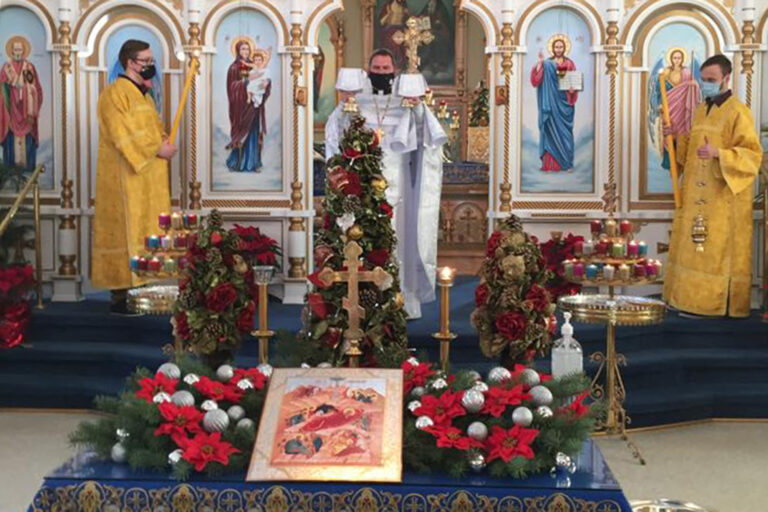
“We’re not lazy,” Lusi Wells says with a laugh. “We’re still celebrating.”
Friday marked the start of the weekend in Prince Albert, but for the City’s Ukrainian population, it’s Christmas. While cold weather and COVID battered the province of Saskatchewan, Ukrainian-Canadians like Wells were trying to stay warm and safe while celebrating Christmas on Jan. 7, as it’s celebrated on the Julian calendar. Some are also trying to explain why they still have their decorations up.
“That’s why some of us weird people still have our lights and trees up,” Wels says with another laugh.
“Traditional Ukrainian Christmas Eve is family only, so in our family it didn’t change much,” she adds. “It’s Ukrainian tradition that you have to be home Christmas Eve. If you wander around Christmas Eve, you’ll be wandering around all year, so we have family (at) home.”
Wells and her family enjoyed a variety of Christmas dishes on Jan. 6, just as they normally would, but the spread of Omicron changed their Christmas Day plans drastically.
Normally, children from Ukrainian families would serenade their elders around the city with carols and collect donations for a worthy cause of charity.
This year, those plans are out.
“Most of those people are older and vulnerable and I don’t want to put anybody at risk,” Wells explains. “It’s sad for us. For younger people, it’s still aright and manageable, but it breaks my heart that there’s so many elderly people—who don’t get out much anyways—(who will) have so few visits.
“To hear someone singing a Christmas song, they won’t be able to hear that this year. That’s even harder for me to think (about) than for us to actually not be able to go.”
Wells plans to make a few phone calls to elderly residents they would normally visit, but she says it’s not the same as meeting in person. In the evening, she’ll pack her kids in the car, grab a cell phone, and drive to various residences for a through-the-window and over-the phone chat.
It’s a way to stay connected, and just as importantly, introduce her children to the traditions she learned as a child.
“I think kids still need to know what it is to go,” she explains. “You do need to get out. It’s Christmas. It’s cold. It’s snow. It’s uncomfortable, but that’s what you do and it’s a good experience.”
A few Ukrainian Christmas Day traditions survive COVID this year. The most important for Father Michal Lomaszkiewicz was the Divine Liturgy at Holy Trinity Ukrainian Orthodox Church.
Lomaszkiewicz said gathering with friends and family is one of the many pleasures of Christmas, but this year it was challenging.
“It is different here than last year, and even the year before, especially, because of the COVID,” he says during a phone interview. “We do what we can.”
Picking a date to celebrate Christmas on is surprisingly political. In 2016, a group of Ukrainian bloggers, politicians and activists angry at Russia’s annexation of Crimea began calling for a Ukrainian Christmas shift to Dec. 25 in protest. Ukrainian politicians like secretary of national security Olexander Turchynov even suggested on Facebook that Ukraine celebrate Christmas in December “along with the majority of civilized countries.”
For Father Lomaskiewicz, Ukrainian Christmas is purely about faith and family. He’s adamant that the celebration of Christ’s birth is more important than which day it falls on the calendar.
“It’s not about the date,” he says. “It’s about how we put the Christ in our celebration. If there’s not a celebration, Christmas has no meaning. Christmas is not about other things. Christmas is about the Christ.
“The day of Christmas is not the big deal. The spirit of Christmas, this is an important thing.”
